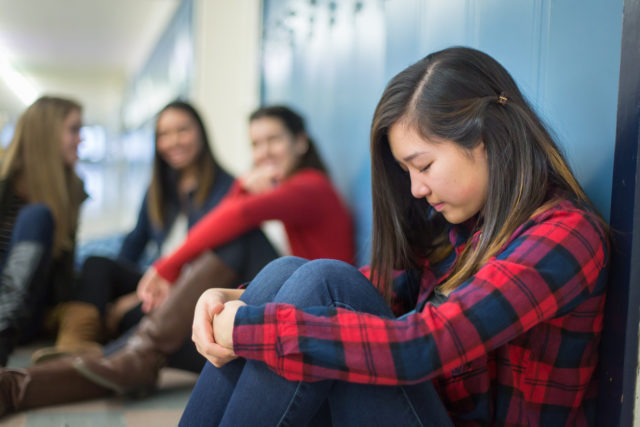
A new study undertaken by the University College Londen and published in The Lancet Child & Adolescent Health indicates that queer youth as young as 10 are much more likely to experience depressive symptoms throughout childhood and into their 20s. The study, which tracked nearly 5,000 people, followed participants answers to questions about depressive symptoms over a decade, from ages 10 to 21. The results seem to suggest that we need to be taking the mental health of young queer people much more seriously.
LGBTQ 18-year-olds in the study were twice as likely to meet the criteria for a depression diagnosis. The study also found that LGBTQ youth were a whopping four times more likely to engage in self-harm than their straight peers. While research has previously shown that queer young people struggle with mental health, this study showed that even very young LGBTQ children are struggling with depressive symptoms more often than straight children.
The study’s author, Madeleine Irish, said that the disproportionate rates of depression symptoms could be caused by “feeling different” at a young age and stressors that emerge as children become adolescents, including “discrimination, stigmatization, feelings of loneliness, social isolation,” and “shame or fear or rejection.”
Dr. Alexandra Pitman, one of the co-authors of the study, said that the research suggests that medical professionals who work with youth need to be open about their patients’ sexuality and not assume that all young people are exclusively heterosexual, which would hopefully open the door for young LGBTQ patients to connect with doctors and receive accurate health information. This study is crucial in light of the difficulties many people experience when trying to find a queer-friendly doctor. Despite these higher rates of mental health issues, LGBTQ people have less access to medical care than others. This study, along with more acceptance of varying genders and sexualities among young people, will hopefully help us change the conversation around LGBTQ youth and make sure that the youngest members of our community get the healthcare and support they need.

What Do You Think?